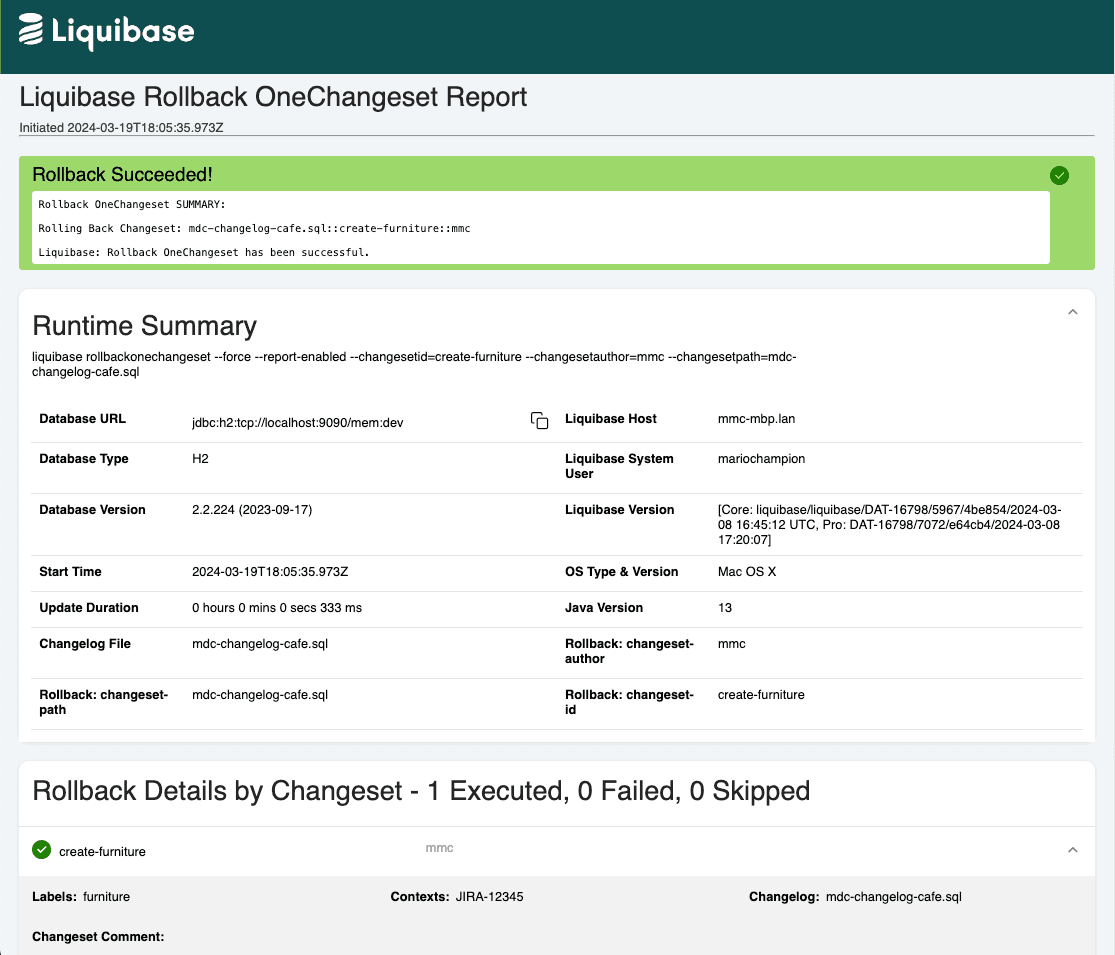What is the rollback report?
Last updated: July 14, 2025
The rollback report is a Liquibase operation report that provides human-readable information about your database rollbacks, including system, runtime, operation, and changeset information.
In Liquibase 4.27.0 and later, you can automatically generate a database rollback report using the Liquibase rollback family of commands: rollback, rollback-count, rollback-one-changeset, rollback-one-update, and rollback-to-date. In Liquibase 4.28.0 and later, you can also generate a rollback report as part of the update-testing-rollback command.
Uses
Using Liquibase rollback reports can help developers, DBAs, DevOps engineers, and managers in the following ways:
Understand and share the data on the execution of
rollbackcommands.Easily scan and understand a high-level overview of the changesets rolled back.
Get a detailed view of both successful and failed rollbacks.
Collaborate with your team with shareable reports in PDF format.

Examples
Setting parameters
You can modify the rollback report output with the parameters listed in the tables on this page. In the CLI, global parameters go to the left of the command, and command parameters go to the right of the command.
liquibase \ --reports-enabled=true \ --reports-path=reports \ --reports-name=rollback_report.html \ rollback \ --changelog-file="example-changelog.xml"
Note: For readability, this page shows parameters on new lines. If you type in the commands on a single line, do not include the backslashes \ shown in the examples.
You can also set parameters in your liquibase.properties file, as environment variables, or in a flow file. For a list of parameters and their syntax in each format, see What parameters can I use with operation reports?
Disable reports by default; enable only the rollback report
If you want to keep reports disabled by default and enable only the rollback report, you can use the command parameter --report-enabled (singular) on a rollback family command. For example:
Parameters
Our What parameters can I use with the operations report? article contains all parameters that you can use for the operations report.